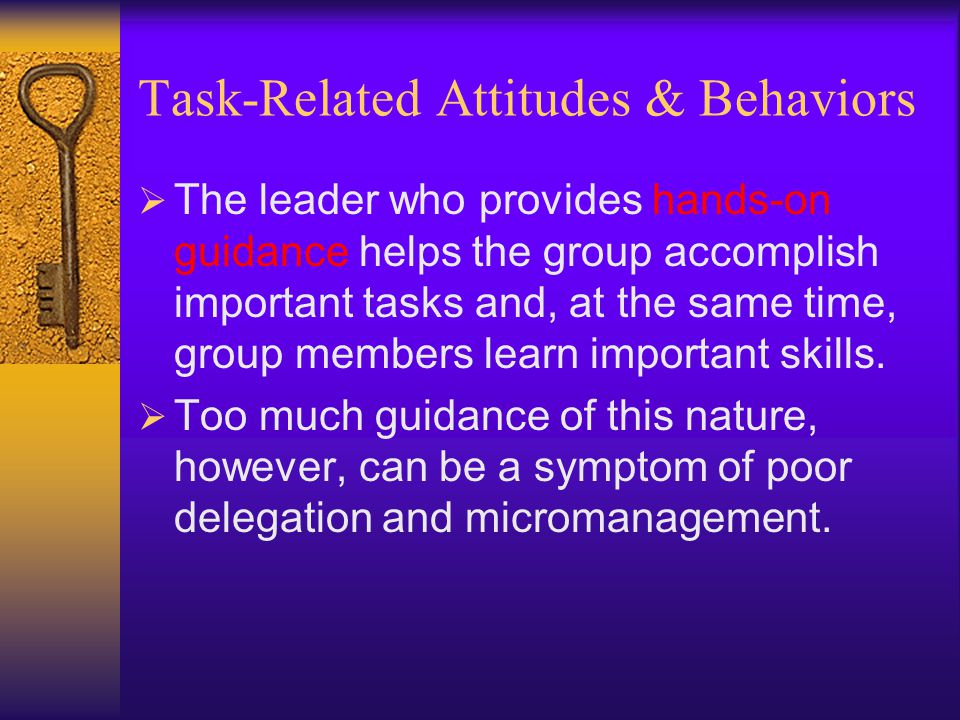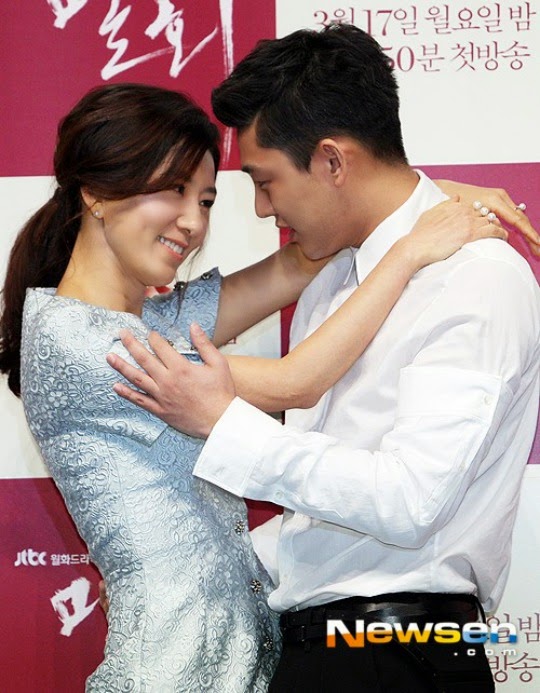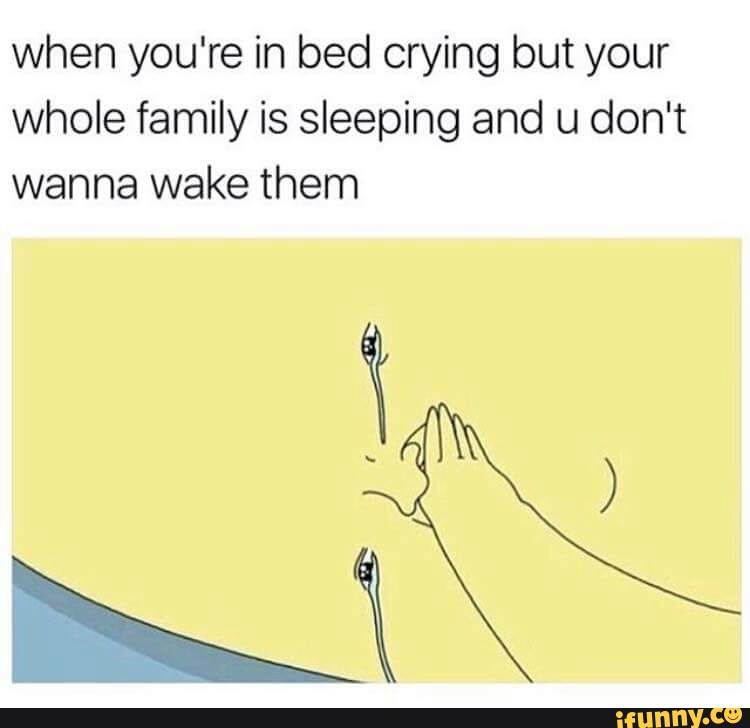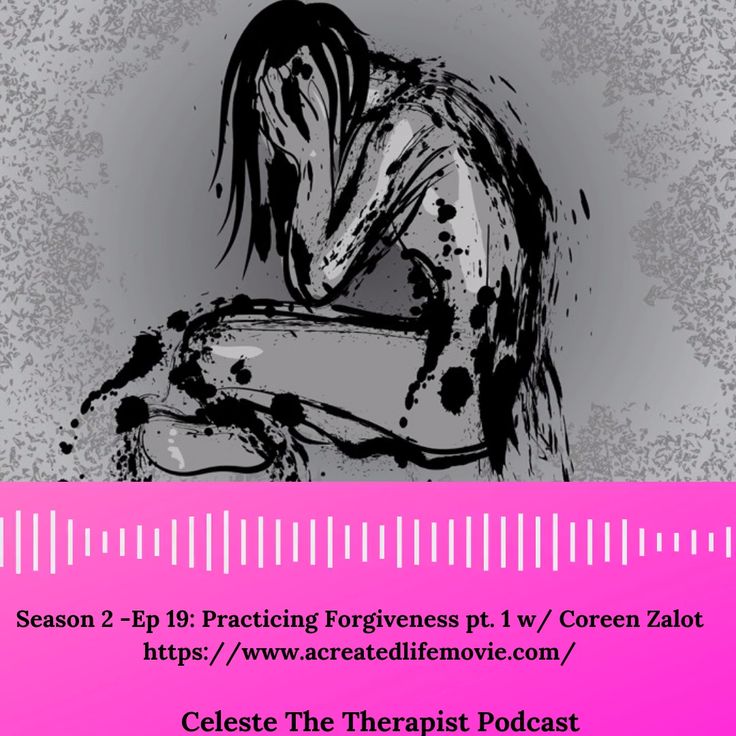Can an abusive relationship be fixed
How to Fix an Abusive Relationship
In This Article
Abusive relationships are obviously harmful and can result in physical, psychological, financial, and emotional damage.
Those who are caught in abusive relationships may love their partners and want to fix the relationship, but after the trauma of the abuse, they may wonder can an abusive relationship be saved.
If you are in an abusive relationship, it can be helpful to learn how to fix an abusive relationship, whether saving the relationship is even possible, and ways of healing from emotional abuse.
Defining an abusive relationship
If you are looking to learn how to fix an abusive relationship, you may be wondering if you are in an abusive relationship in the first place. The answer to what is an abusive relationship is as follows:
- An abusive relationship is one in which one partner uses methods to gain power and control over the other.
- An abusive relationship is not reserved only for cases where one partner is physically violent toward the other.
An abusive partner may also use emotional or psychological methods to gain control and exert power over their significant other.
- Stalking, sexual abuse, and financial abuse are other methods that constitute abuse in a relationship.
If your partner is showing one or more of the behaviors above, you are probably involved with an abusive partner.
Also Try: Are You In An Abusive Relationship Quiz
How do I know if I am in an abusive relationship?
In addition to wondering what is an abusive relationship, you may want to know how you can tell if you are in an abusive relationship.
The signs of being in an abusive relationship can vary based upon whether your partner is physically abusive, emotionally abusive, or a combination of these. Some signs you’re in an abusive relationship are as follows:
- Your partner throws items, such as books or shoes at you.
- Your partner physically strikes you, or engages in other physically abusive behaviors, such as hitting, kicking, punching, or slapping.

- Your partner grabs your clothing or pulls your hair.
- Your partner prevents you from leaving the house or forces you to go certain places against your will.
- Your partner grabs your face and turns it toward them.
- Your partner engages in behaviors such as scratching or biting.
- Your partner forces you to have sex.
- Your partner threatens you with a gun or other weapon.
- Your partner kisses or touches you when it is not wanted.
- Your partner makes insults about your sexual behavior, forces you to try sexual acts against your will, or threatens some sort of punishment if you do not perform certain sexual acts.
- Your partner embarasses you on purpose.
- Your partner frequently yells and screams at you.
- Your partner blames you for their own abusive behavior.

- Your partner accuses you of cheating, tells you how to dress, and limits your contact with friends or family.
- Your partner damages your property or threatens to harm you.
- Your partner will not allow you to have a job, stops you from going to work, or causes you to lose your job.
- Your partner does not allow you to access the family bank account, deposits your paychecks into an account you cannot access, or does not allow you to spend money.
Remember, an abusive partner is one who tries to gain power or control over you, in order to bend you to their will. The signs you’re in an abusive relationship all involve a partner controlling you, whether financially, physically, sexually, or emotionally.
Aside from these more specific signs, in general, abuse in a relationship can involve your partner making you feel bad about yourself, eroding your self-esteem, and placing you in a situation where you are dependent upon your partner financially, so it is difficult to escape the relationship.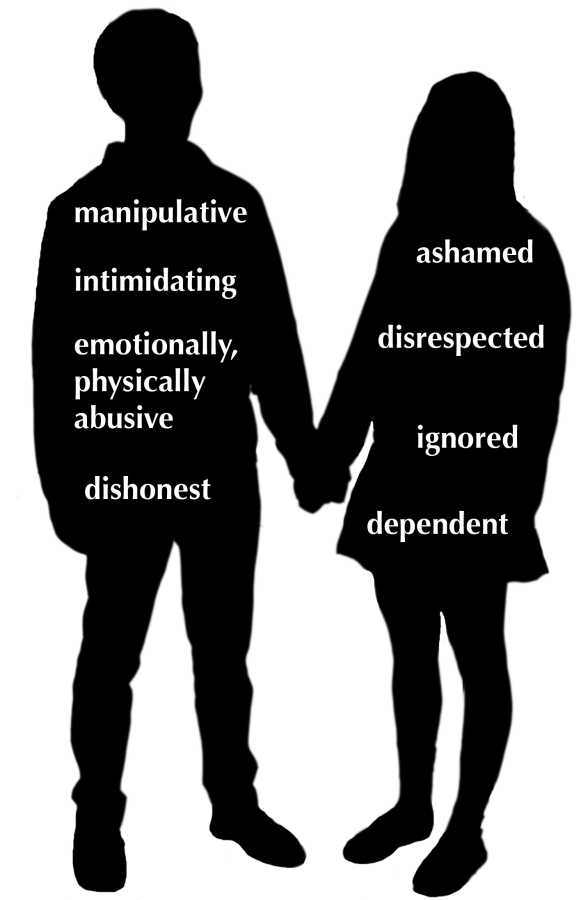
Another way to know you are in an abusive relationship is that it will become a cycle.
There is typically a tension building phase, during which the abusive partner begins to show signs of anger or distress,followed by an escalation period, where the abuser attempts to gain control over the partner and increases abusive tactics.
After an outburst of abuse, there is a honeymoon stage, during which the abuser apologizes and promises to change. A period of calm follows, only for the cycle to begin again.
Also Try: Controlling Relationship Quiz
Who is responsible for the abuse?
Unfortunately, an abusive partner can lead the victim to believe the abuse is the victim’s fault, but this is never the case.
Abuse in a relationship is the fault of the abuser, who uses coercive methods to gain control over their partner.
An abuser may engage in a behavior called gaslighting, in which they use tactics to make the victim question their own perception of reality as well as their own sanity.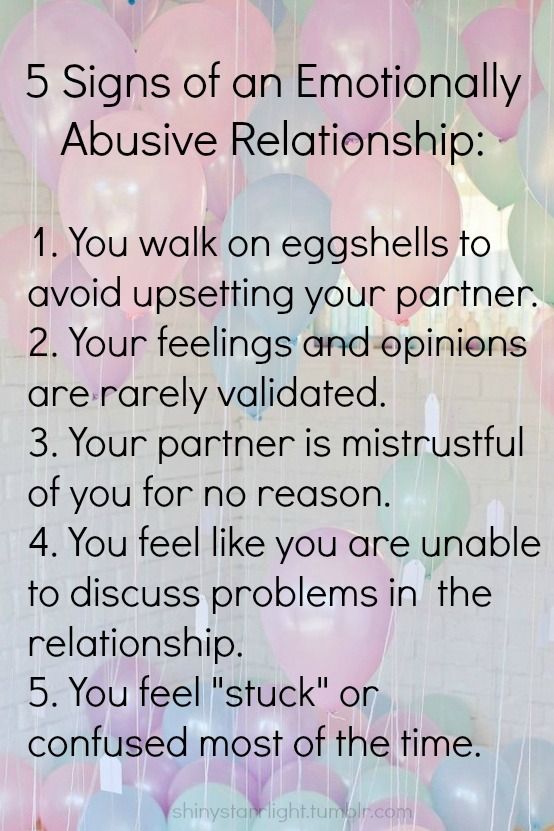
An abuser who uses gaslighting may call their partner crazy and deny saying or doing certain things that the abuser has, in fact, said and done.
The abuser may also accuse the victim of remembering things incorrectly or overreacting. For example, after an incident of physical or verbal aggression, the victim may appear upset, and the abuser may deny that the incident ever occured.
Over time, this gaslighting behavior from an abusive partner can lead the victim to believe that the victim is to blame for the abuse. Regardless of what the abuser says, abuse is always the fault of the abuser.
Related Reading: How to Deal with Gaslighting
Also watch: Unmasking the abuser
What causes someone to be an abuser?
There is no single answer to what leads someone to become an abuser, but the psychology behind abusive relationships provides some explanation.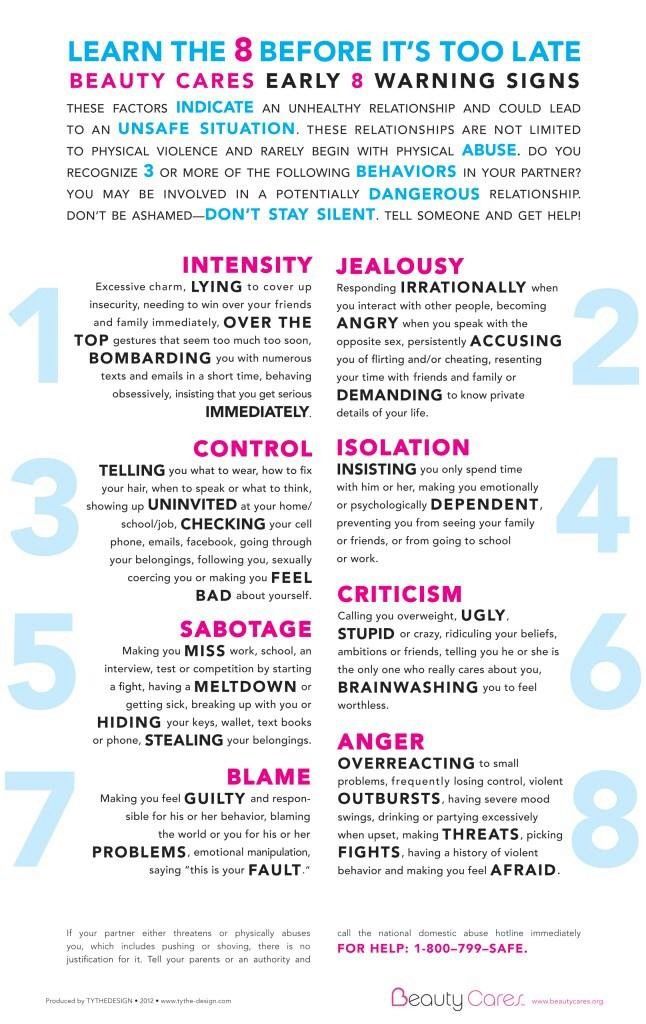
For example, one study in the professional publication Aggression and Violent Behavior found that women who become abusive partners are more likely to have a history of trauma, attachment issues, drug abuse, child abuse, and personality disorders.
Having a difficult upbringing or struggling with mental health issues or addiction therefore appears to be linked to abusive relationships.
A second study in the Mental Health Review Journal confirmed these findings. According to study results, the following factors are linked to becoming an abusive partner:
- Anger problems
- Anxiety and depression
- Suicidal behavior
- Personality disorders
- Alcohol abuse
- Gambling addiction
Both of the studies mentioned here suggest that mental health problems and addictions can lead to someone becoming abusive in relationships.
The first study also suggests that childhood trauma and abuse are linked to abuse in relationships.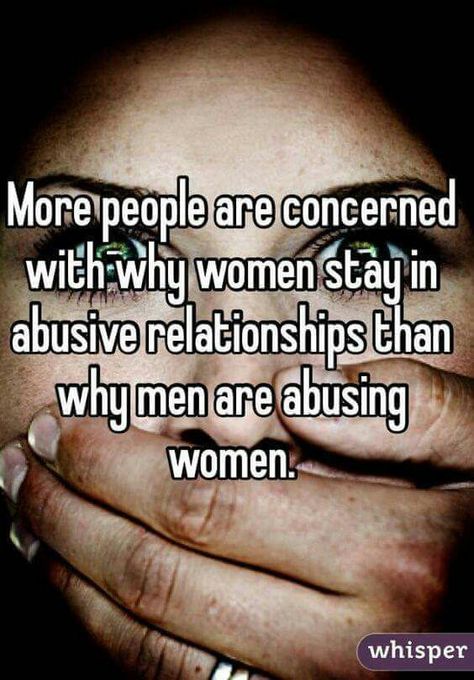 While these findings do not excuse abusive behavior, they do suggest that there is psychology behind abusive relationships.
While these findings do not excuse abusive behavior, they do suggest that there is psychology behind abusive relationships.
When someone is struggling with mental illness, addiction, or unresolved trauma from childhood, they may engage in abusive behaviors as a coping mechanism, because of learned behavior, or because abuse is a symptom of the mental health problem.
Related Reading: Facts About Physical Abuse in a Relationship
Are abusive partners capable of real change?
Changing abusive behaviors can be difficult. An abuser may deny that there is a problem, or they may be ashamed to seek help. If you’re wondering can abusers change, the answer is that it is possible, but it is not an easy process.
For change to occur, the perpetrator of the abuse must be willing to make changes. This can be a lengthy, challenging, and emotionally taxing process.
Remember, abusive behavior is linked to mental health and drug problems, as well as issues stemming from childhood.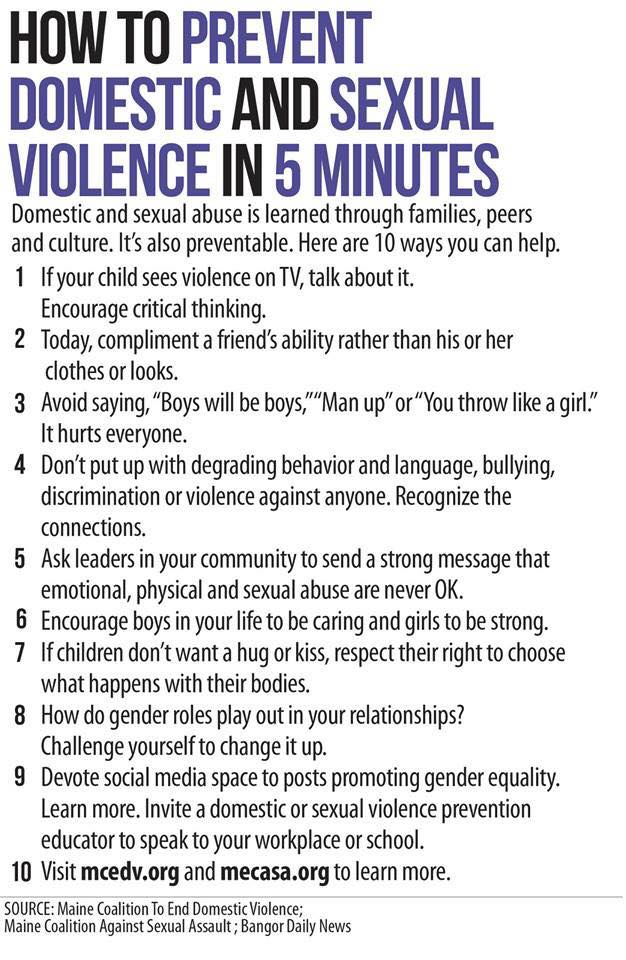 This means that the abusive partner must overcome deep-seeded behaviors in order to demonstrate real change.
This means that the abusive partner must overcome deep-seeded behaviors in order to demonstrate real change.
The perpetrator of the abuse must also take the responsibility to put an end to abusive and violent behavior. In the meantime, the victim in the relationship must be prepared to stop accepting abusive behavior.
After the victim has healed and the perpetrator has demonstrated a commitment to changing abusive behavior, the two members of the relationship can come together to try to heal the partnership.
Related Reading: Can an Abuser Change?
How to recognize an abusive partner’s commitment to change?
As mentioned, abusive partners can change, but it requires hard work and effort, and the abuser must be willing to make changes. This often requires undergoing individual therapy and eventually couples counseling.
If you are looking to recover from an abusive relationship and want to know whether you can trust that your partner is committed to making changes, the following signs can be indicative of real change:
- Your partner expresses empathy and understands the damage they caused to you.
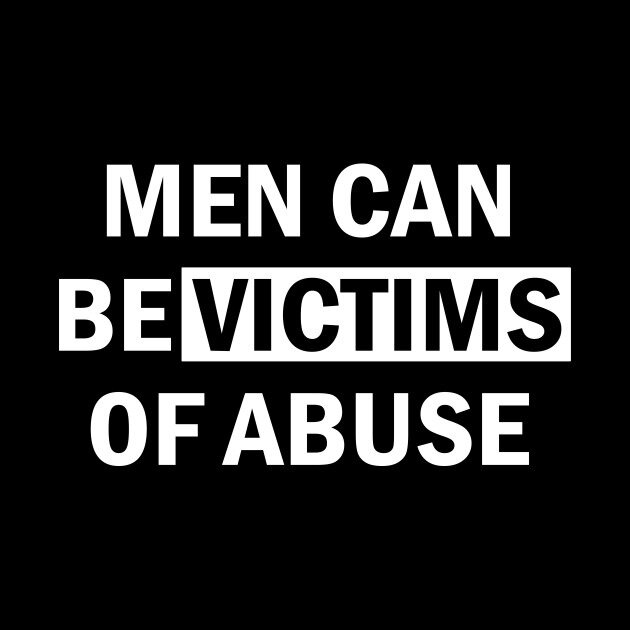
- Your partner takes responsibility for their behavior.
- Your partner is willing to participate in the healing process, and respects if you desire not to have contact with them for a while.
- Your partner does not ask for rewards for good behavior and recognizes that refraining from abuse is simply expected behavior.
- Your partner seeks long-term professional help to address abusive behavior, as well as any co-occurring issues, like drug or alcohol abuse or mental illness.
- Your partner is supportive as you work to overcome any underlying issues you may have as a result of the abusive relationship.
- Your partner shows that they are able to discuss emotions in a healthy way, as evidenced by them having a better ability to talk through issues with you without blaming or having angry outbursts.
Related Reading: Why Do People Stay in Emotionally Abusive Relationships
Can you forgive an abuser?
If you have been the victim of abuse in a relationship, it is up to you whether you are able to forgive your partner. You may need to explore your emotions with a therapist or other mental health professional.
You may need to explore your emotions with a therapist or other mental health professional.
It is normal to feel conflicted when deciding can an abusive relationship be saved. On the one hand, you may love your partner and want to reconcile with them, but on the other hand, you may be fearful of your partner and exhausted after enduring emotional and perhaps physical abuse.
If you are committed to fixing your relationship, you can forgive an abuser, but it will likely be a lengthy process.
You will need time to recover from the trauma that the relationship has caused, and your partner will need to be patient with you during this process.
Finally, your partner must also be willing to make real changes and participate in therapy to achieve these changes. If your partner is not able to make changes, it may be time to move on from the relationship instead of trying to forgive your partner.
Related Reading: Should You Save Your Marriage If You Have an Abusive Husband?
Is it possible to fix an abusive relationship?
You can fix an abusive relationship, but healing from emotional abuse is not easy.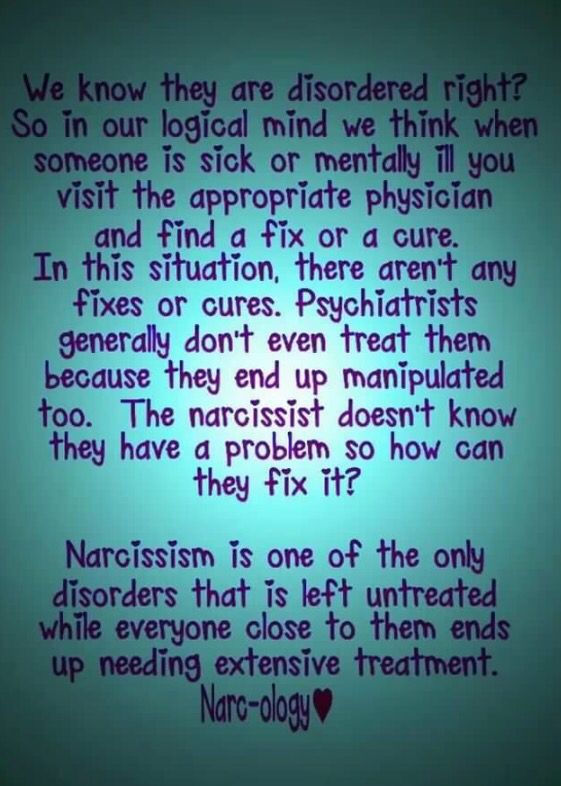 Both you and your partner will likely have to undergo individual therapy, before coming together for relationship counseling.
Both you and your partner will likely have to undergo individual therapy, before coming together for relationship counseling.
During the process, you, as a victim, will need to hold your partner accountable for making changes, and your partner will have to unlearn the abusive behaviors and patterns they have learned.
The process will take time, and both you and your partner must be willing to participate in the process of healing.
Related Reading: Can A Relationship Be Saved After Domestic Violence
How to fix an abusive relationship?
If you have determined that you would like to forgive your partner and learn how to fix an abusive relationship, it is time to have a conversation with your partner.
- Pick a time when you will be able to remain calm, because an abusive partner likely will not respond well to anger. Use “I” statements to tell your partner how you feel.
For example, you may say, “I feel hurt or scared when you act this way. ” Using “I” statements can lower your partner’s defenses, because this form of expressing yourself shows that you are taking ownership for your feelings and sharing what you need.
” Using “I” statements can lower your partner’s defenses, because this form of expressing yourself shows that you are taking ownership for your feelings and sharing what you need.
- When initiating this process, it is helpful to work with a counselor or therapist so you can have a neutral perspective as well as a safe place to process your emotions.
- During the conversation, your partner may become defensive, but it is important to remain calm and stay on track with the purpose of your conversation: to communicate to your partner that you are hurting and seeking changes.
- If the relationship can be fixed, the ideal outcome of this conversation is that your partner will agree to get help to stop the physically or emotionally abusive relationship.
- The answer to can an abusive relationship be saved depends upon whether both you and your partner are willing to engage in professional therapy or counseling.

- While your partner does individual work to put a stop to violent and abusive behavior, you will need to work with your individual therapist to go through the process of recovering from abuse.
- Once you and your partner have completed individual work, you are ready to come together for relationship counseling to begin to rebuild a healthy relationship.
Related Reading: How to Deal with Psychological Abuse in RelationshipsConclusion
A study trying to understand domestic violence and abuse in intimate relationship from public health perspective concluded that the occurrence of abuse in relationship has multiple consequences and as long as violent behavior patterns may be accepted as a private matter, its causes and effects will be overlooked
It is necessary to involve efforts which reduce aggressive incidents in intimate relationships.
Fixing an abusive relationship is not easy, but it is possible. If you are stuck in a cycle of abuse and are willing to forgive your partner and heal, have a conversation during which you express why you are hurting and what you need from your partner.
If you are stuck in a cycle of abuse and are willing to forgive your partner and heal, have a conversation during which you express why you are hurting and what you need from your partner.
If the conversation goes well, you can begin the process of going to individual therapy while your partner does individual work to learn how to overcome abusive behaviors. Finally, the two of you can begin relationship counseling.
If your partner shows a real commitment to change and accepts accountability for the damage that has been caused, it is possible to fix the relationship.
On the other hand, if your partner is not willing to make changes or promises to change but continues the same behavior, it may not be possible to fix the relationship, in which case you can continue individual therapy to help you with healing from emotional abuse.
5 Things That Need to Change for a Toxic Relationship to Get Better
Photo by Yuris Alhumaydy
Being in an abusive relationship is extremely damaging. But even though everybody in your life and on the internet might be telling you to leave, maybe you don’t feel ready for that step yet.
But even though everybody in your life and on the internet might be telling you to leave, maybe you don’t feel ready for that step yet.
Letting go and leaving a toxic relationship is extremely difficult.
I’ve done it myself, so I know how hard it is to truly give up on a person you care about.
If you feel like there is still hope for your relationship and you’re willing to work hard to fix things, this article will help you understand what it takes to fix an abusive relationship.
1. Both Partners Must Realize That They Are In An Abusive Relationship
In order to even begin fixing an abusive relationship, both the abuser as well as the victim must be willing to see that the abuse is a problem.
If you happen to be the victim in an abusive relationship, you must make sure that your partner sees his/her behavior as abuse. Otherwise, they will never even try to change.
First of all, realizing that your relationship is toxic is tricky in itself. Nobody ever chooses to be treated badly. We only find ourselves in those kinds of situations, because we’re blind to the damaging behaviors, that are either being inflicted upon us, or we’re inflicting upon others.
Nobody ever chooses to be treated badly. We only find ourselves in those kinds of situations, because we’re blind to the damaging behaviors, that are either being inflicted upon us, or we’re inflicting upon others.
I used to be completely blind to verbal abuse and physical threats, crazy as it sounds, I perceived it as “means of communicating”. It wasn’t until I saw it for what it was, that I could start doing something about it.
The first time I realized I was being subject to verbal abuse and physical threats was during an internship. Even then, it took me two months of working in a completely toxic atmosphere, with bosses screaming at employees every single day until I realized that this was not a “normal working environment”.
It’s not just victims of abuse that are blind to it, the abusers themselves don’t see it either. They often view their behavior as justified and necessary.
Much like an abusive parent believes that spanking their kid is an act of love required to teach them a lesson, your partner might view his/her verbal abuse as e.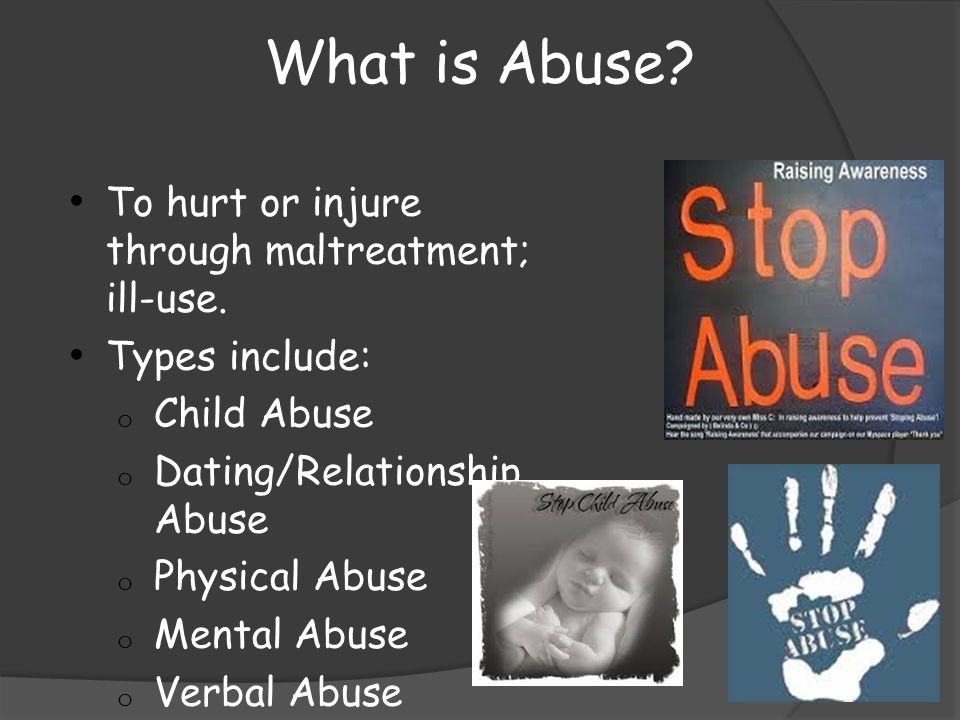 g a way of expressing how much you mean to them.
g a way of expressing how much you mean to them.
So the first step in fixing an abusive relationship is making sure that both you and your partner don’t perceive their abusive behavior as normal or justified.
2. The Abuser Must Be Willing To Give Up The Power They Hold Over Their Victim
The power dynamic in an abusive relationship is often extremely unequal.
The truth is, all abusers rule with fear.
They might give you presents and then threaten to take them away.
They do something kind for you, then make you feel like you now owe them a thousand thanks, and must comply with all their desires.
Often victims of abuse feel like they’re walking on eggshells the whole time, constantly trying to avoid the next outburst.
All these kinds of behaviors are extremely manipulative. The abuser makes sure he/she can control their partner. They hold the power to make or break the relationship.
In order to turn a toxic relationship into a healthy one, both partners must make an effort to create a more equal power dynamic. That means the abuser must let go of the power and control and give it back to their partner.
That means the abuser must let go of the power and control and give it back to their partner.
The abusive partner must free their victim to act and choose as they please. It is a hard and scary step to take. Which brings me to my next point.
3. Sometimes To Gain Something, You Must Be Ready To Lose Something Else
True change often requires a sacrifice. Much like an abusive partner must let go of control and power, in order to fix a relationship, the victim must be ready to give up this paradoxical sense of safety that comes from being controlled.
As a victim in an abusive relationship, you’re going to have to learn to take charge in your life and accept responsibility for your own choices.
Moreover, if you and your partner truly want to save the relationship, you must face the source that caused both of you to be the way you are.
They say abusers aren’t born, they’re made. In order to fix an abusive relationship, you’re gonna have to talk a lot about where these kinds of behaviours originated from.
It’s not just the abusers that had had a rough childhood.
For someone to become a victim in an abusive relationship, they must have had their share of bad experiences as a child too.
There are a lot of books and resources that deal with the effects of all sorts of childhood trauma in adult life. If you are serious about fixing your relationship, you will have to look into it.
The book that really helped me to begin to grasp how toxic relationships work and where they stem from was Toxic Parents by Susan Forward.
4. Realize And Accept That The Change Will Not Happen From One Day Onto The Next
People don’t change their behavior from one day onto the next. All lasting changes are gradual.
Much like with losing weight, losing bad habits takes time, there are setbacks too. It’s about changing your mindset and developing a healthier attitude towards people.
Don’t expect your partner to suddenly stop all their abusive behaviors.
Likewise, don’t expect yourself to suddenly effortlessly set boundaries and always stand your ground.
Demanding a sudden change will only set you and your partner up for failure.
You have to come to terms with the fact that fixing an abusive relationship is a long term project. There are no quick fixes when it comes to this one.
Having said that, every little change in your or your partner’s behavior and attitude can make your relationship significantly better.
Also, don’t forget to keep an eye out for how often you’re fighting to know how healthy your relationship is.
5. There Is Going To Be A Lot Of Emotional Baggage And Resentment To Deal With
A lot of relationship experts and religious leaders teach us to forgive and forget.
This is really bad advice, especially when it comes to handling abusive relationships.
Forgiving and forgetting will inevitably set you up for more suffering, as an abusive partner will never have to face any consequences of his/her actions.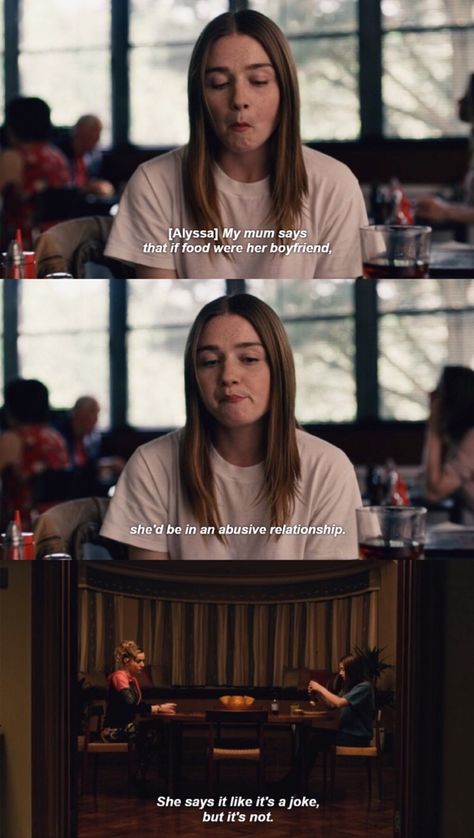
It’s in your interest to remember all the bad things that happened in the relationship, it is the only way to ensure that they will not repeat.
Holding your partner accountable is necessary to help them overcome their abusive tendencies and change their behavior for the better.
Unfortunately, all the abuse that has already taken place between you and your partner is taking a toll on your relationship. Abusive incidents shatter trust and cause resentment to build.
In order to save your relationship, you will need to talk about the bad things that happened between you.
Your partner will have to work on regaining your trust and you will have to find ways to process and express all that resentment and anger that gets pent up in every victim of abuse.
Conclusion
So can an abusive relationship be fixed?
I believe it can. However, in my personal experience, I’ve never managed to make it work. Not even when it was just an abusive friendship.
Not even when it was just an abusive friendship.
In most cases, the toxic people in my life didn’t want to see that there was something wrong with our relationship, and even when they did see the problem to some degree, they refused to give up the power the abuse gave them.
If both parties are not willing to make it work, it will not work and the abuse will continue.
In my thirty years of life, I was forced to leave a lot of people behind. Even though it was very sad and took me a long time to let go, cutting the abusers out freed me and changed my life for the better.
I understand if you’re wanting to do everything in your power to fix your abusive relationship. I did too. If your partner is willing to put the same effort in that you are, things could really change for the better.
However, be wary and don’t hesitate to put yourself first. Nobody deserves to be emotionally, verbally or physically abused.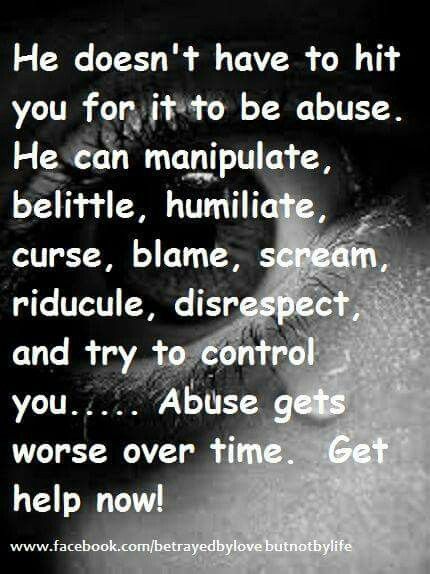
Now if after reading all of this, you feel hopeful that your relationship can change for the better, a good next step could be to learn more about how to fix your relationship when you can’t talk without arguing, since it’s a common barrier that prevents toxic relationships from actually getting better.
If on the other hand, you feel doubtful about whether your relationship can change at all, you might find it helpful to check how many signs of your relationship being undeniable over fit for you.
Either way, listen to yourself and give yourself the time you need to figure out how to feel about it all. That way you can make your move forward and make your decision with more clarity.
I hope this post helped you and if you have any questions or experiences you’d like to share, don’t hesitate to leave them in the comments section bellow.
Cheers,
Karolina
- Author
- Recent Posts
Karolina Bartnik
Karolina is a co-founder of the SimplyTogether blog.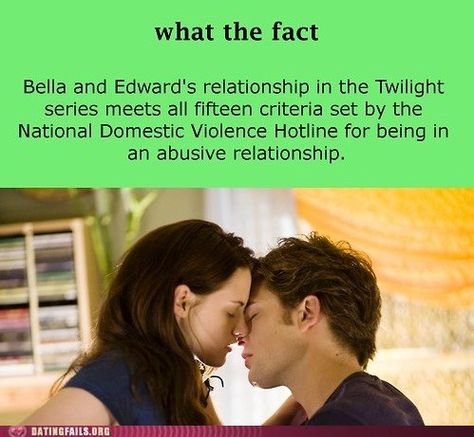 She and her husband Gabriel went from frustrating fights and breakups to successfully building a lasting and loving relationship. Read their story here!
She and her husband Gabriel went from frustrating fights and breakups to successfully building a lasting and loving relationship. Read their story here!
Latest posts by Karolina Bartnik (see all)
Abuse: recognize and fight back. From psychological violence to psychological independence / Blog / Armine Voronova
March 10, 2021
In my practice, unfortunately, I often come across cases of psychological (or emotional) violence - abuse. The term abuser is used to describe a person who uses violent or manipulative methods (this can be psychological, physical or economic abuse) to achieve their goals. An abusive relationship is a derogatory relationship between a "tyrant" and a "victim", which is accompanied by constant manipulation with the help of money, blackmail, threats and assault, as well as moral mockery by the aggressor.
During my many years of practice as a psychologist, I often had to work with cases of moral suppression and humiliation in family relationships, in relationships between colleagues and partners.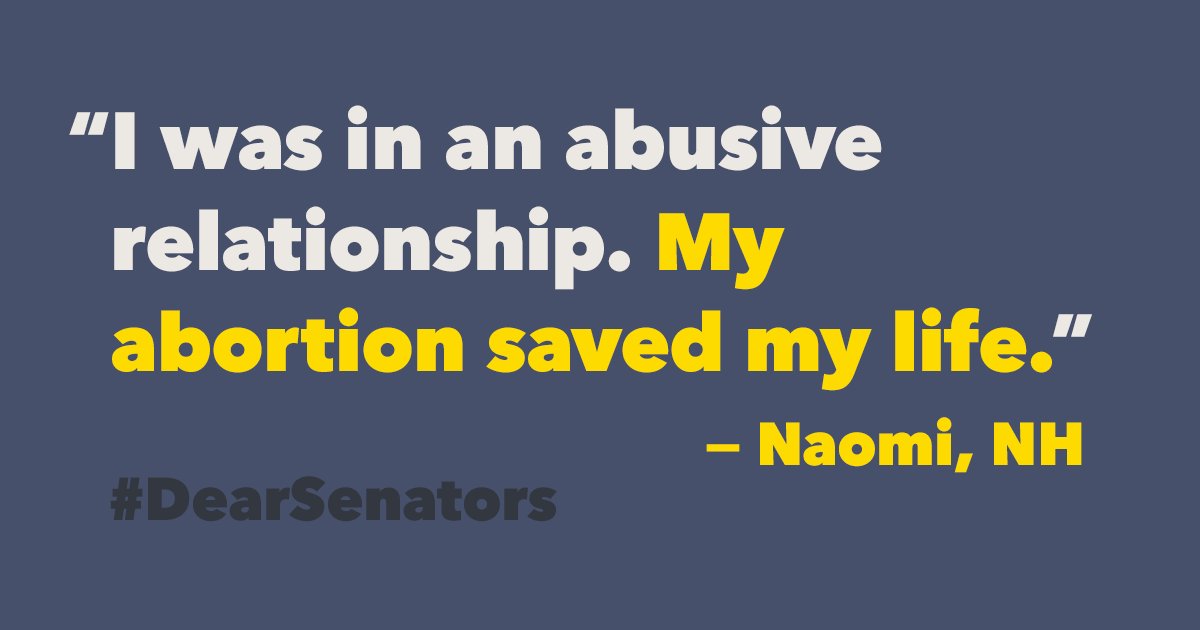 I would like to note that both men and women can be abusers.
I would like to note that both men and women can be abusers.
There are explicit and implicit forms of manifestation. If the explicit form is easy to recognize, then in cases of the implicit form of manifestations of psychological violence, the victims do not immediately recognize and understand the true attitude of the partner.
For example, a client - a wonderful, smart, educated woman, graduated from the Faculty of Economics of Moscow State University, a woman - tells me a situation that is common for her relationship with her husband: “We like to discuss different topics with him, and if I say that I don’t understand something or I don’t know (suppose, in the device of a car, in mechanics, etc.) he orders his eyes and says that at my age it’s a shame not to understand simple things or not to know, for example, the names of Czech composers or some historical fact ... I understand that it is not necessary to know everything, but he constantly puts me in an awkward position, especially in front of children . .. ”In other words, the husband tries to show his superiority and his right to criticize and devalue. In such "dialogues" there is definitely no constructive discussion, there is only a desire to cause a feeling of shame and guilt with their ridiculous remarks. It is surprising that a woman is ready to justify such behavior of her husband. She explains: “I understand that he does everything for the family and wants me to match him, so he makes comments to me, teaches me ...” To my question, what she feels at the same time, she answers: “Of course, I’m offended ... he could somehow more delicately ... it seems that he deliberately wants to hurt me, undermine my self-esteem. I’m an excellent student and a perfectionist, I’m used to doing everything and knowing everything 100%, and with his remarks he makes me understand that I’m not so smart ... "0003
.. ”In other words, the husband tries to show his superiority and his right to criticize and devalue. In such "dialogues" there is definitely no constructive discussion, there is only a desire to cause a feeling of shame and guilt with their ridiculous remarks. It is surprising that a woman is ready to justify such behavior of her husband. She explains: “I understand that he does everything for the family and wants me to match him, so he makes comments to me, teaches me ...” To my question, what she feels at the same time, she answers: “Of course, I’m offended ... he could somehow more delicately ... it seems that he deliberately wants to hurt me, undermine my self-esteem. I’m an excellent student and a perfectionist, I’m used to doing everything and knowing everything 100%, and with his remarks he makes me understand that I’m not so smart ... "0003
This is a kind of family game in which the “victim” accepted the role of “sorry, darling, I’m not up to your level, I don’t deserve to be loved.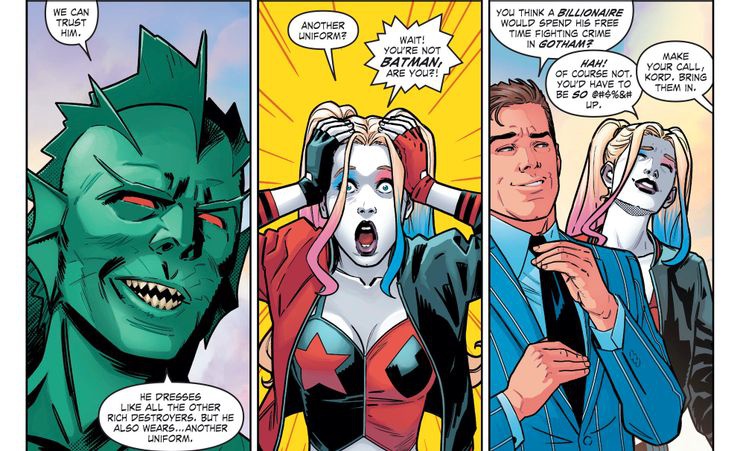 ” My client was taught from childhood that love can only be earned by good behavior, excellent grades and right thoughts. Such “right” people are godsend for abusers. This example is the most harmless manifestation of psychological violence, to which the partner gets used and perceives, unfortunately, as the norm.
” My client was taught from childhood that love can only be earned by good behavior, excellent grades and right thoughts. Such “right” people are godsend for abusers. This example is the most harmless manifestation of psychological violence, to which the partner gets used and perceives, unfortunately, as the norm.
What are the psychological reasons for the behavior of the “victim”, why does she allow such an attitude? Most often the cause is in childhood. For example, parents themselves do not realize how they affect their child when they say a seemingly banal phrase: “You don’t want to ...” And then it follows, depending on the situation, “you don’t want to fall”; “You don’t want to work as a janitor all your life”; "do not want to be alone"; “you don’t want to suffer,” etc. Such parental attitudes are harmful in that they form a ban on their own desires in children. Indeed, with such an attitude, the parent himself decides what needs to be wanted and what the child cannot want; which "wishes" of the child are correct, good, and which are not. All this leads to emotional alienation and deprives the child of a sense of inner support. Emotionally rejected and without a sense of support, such a “comfortable” and obedient child in the future is an excellent target for a psychological manipulator and aggressor.
All this leads to emotional alienation and deprives the child of a sense of inner support. Emotionally rejected and without a sense of support, such a “comfortable” and obedient child in the future is an excellent target for a psychological manipulator and aggressor.
Let's look at other forms of abuse in a relationship.
• You constantly curry favor with your partner
You try not to anger your loved one and carefully choose your words in a conversation with him. “It seems that you have come to terms with a secondary role, diligently controlling yourself, which means that you have learned what to do so that your partner does not insult you openly,” explains psychologist Steven Stonis, author of Love Without Hurt (“Love without harm” ).
• Your partner uses gaslighting techniques
The term "gaslighting" appeared in the middle of the 20th century after the English play "Gas lighting" (trans.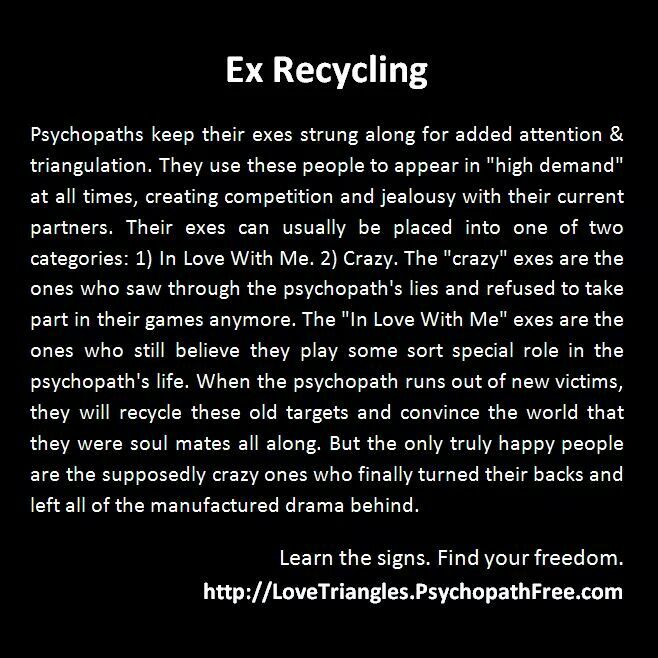 "Gas light"), the main idea of which was to question the adequacy of the protagonist through psychological manipulation.
"Gas light"), the main idea of which was to question the adequacy of the protagonist through psychological manipulation.
“Your partner is trying to influence your perception of reality by denying or distorting what is really happening. He says things like "You're making it up, it didn't happen" or "I never said/did that". Over time, such statements can develop a sense of self-doubt, and you begin to agree with your partner's distortions. Self-doubt leads to self-doubt, which makes you more vulnerable to a manipulative partner,” says psychotherapist Carol A. Lambert, author of Women with Controlling Partners.
Almost everyone has experienced a similar situation in a mild form. You probably had a conflict with your opponent, in which you claimed that he had repeatedly reproached and insulted you, but the person categorically denied this. Or when sorting out relations with your parents, you said that you never felt support and were always criticized, and in response you heard that the problem was far-fetched and there was nothing like that.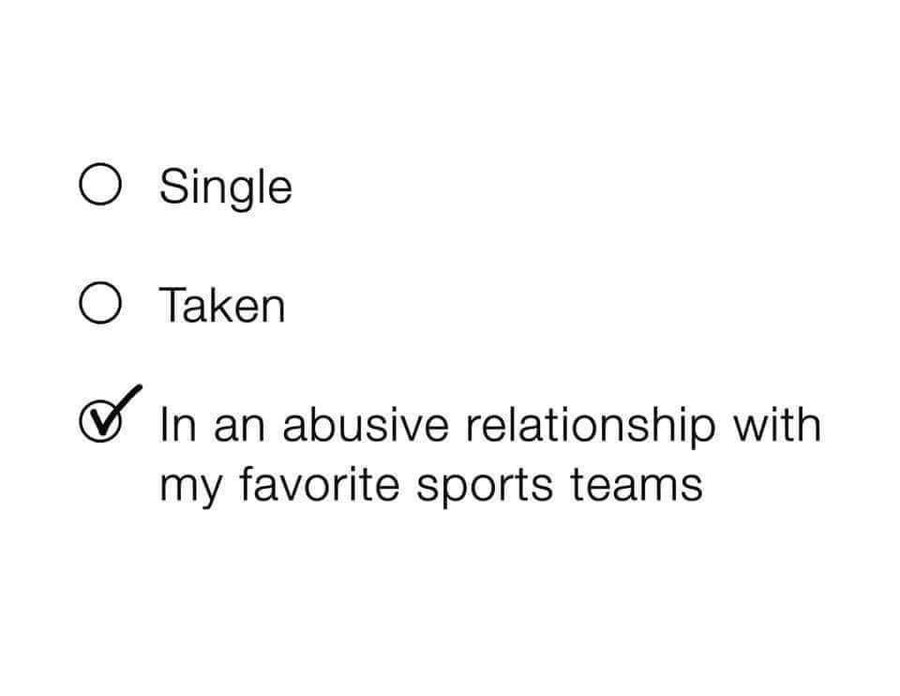 Perhaps in a relationship you caught a loved one in flirting or even cheating, and in response you received accusations of an inadequate perception of reality.
Perhaps in a relationship you caught a loved one in flirting or even cheating, and in response you received accusations of an inadequate perception of reality.
• The partner demands constant reporting “where, when and with whom”
According to Dr. Lisa Ferenc, trying to maintain complete control can be a serious problem in a relationship. Contact several times a day for the purpose of "checking in" can turn into constant harassment. The requirement to constantly report on the whereabouts of a partner and attempts to limit freedom of movement and communication with others is one of the characteristic signs of emotional abuse.
• Partner says hurtful words to you, claiming that it's just a "joke"
“When you start complaining, they retort that it’s just a joke, and you are too hypochondriac or you have a sense of humor problems. But the truth is that in every sarcastic remark or hurtful joke there is some truth,” warns psychotherapist Shari Stines .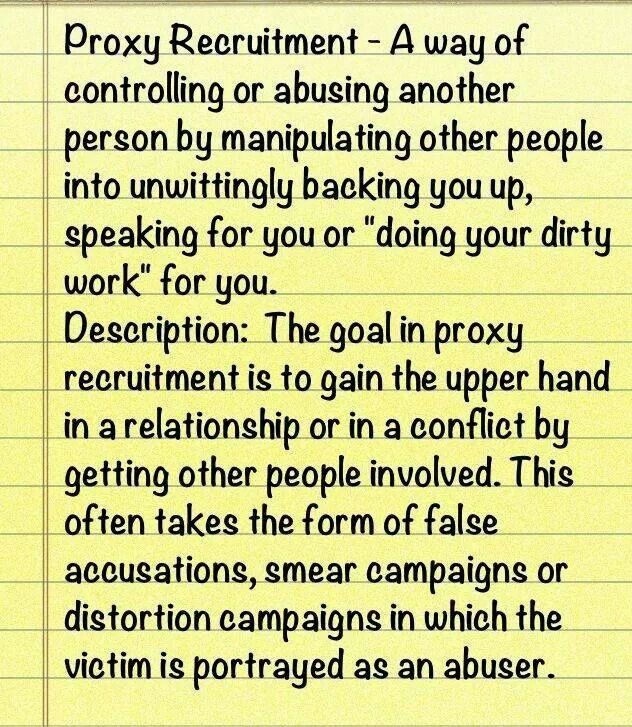
• You apologize even when you know you didn't do anything wrong. The imposition of guilt is a characteristic manipulation of the abuser.
“Victims of emotional abuse often come to believe that they are stupid or selfish because their partner blames them too often,” explains psychotherapist Beverly Angle, author of Emotionally Abusive Relationships.
• Your partner has frequent mood swings: he/she is either too hot or too cold
“For a while he exudes love, but suddenly becomes cold and unapproachable. You cannot understand the reason, no matter how hard you try. He refuses to communicate, you start to panic, trying to win back his favor, and because of the lack of explanations, you begin to blame yourself. Quite often, this can turn a relatively independent person into a restless sycophant trying to win back a partner’s favor,” says Peg Streep, author of Daughter Detox: Recovering from An Unloving Mother and Reclaiming Your Life. own life").
• Your partner refuses to recognize your strengths and devalues your achievements
“Devaluation and derogatory remarks may not be taken seriously at first, but these are not casual slips of the tongue.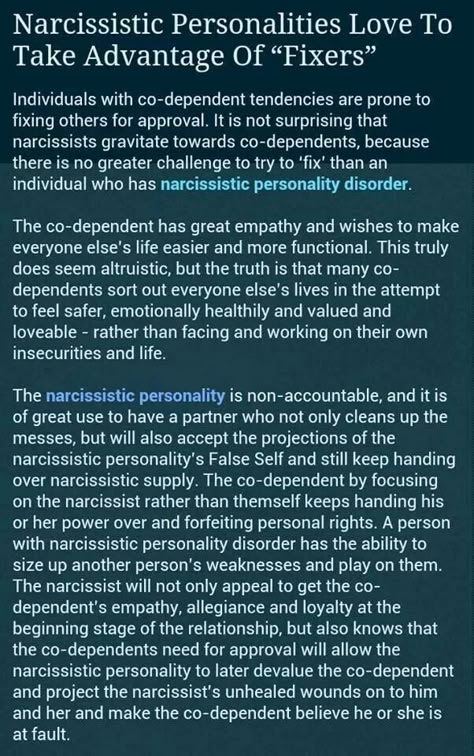 Most likely, they are aimed precisely at your strengths, which the partner evaluates as a threat and tries to control them. Your partner's reaction to your achievements can say a lot. Does he show little or no interest in you? In a conversation about your virtues, does he change the subject or criticize you for something you don't do? Over time, your sense of self-confidence and sense of self-competence can seriously decrease,” explains Dr. Lambert.
Most likely, they are aimed precisely at your strengths, which the partner evaluates as a threat and tries to control them. Your partner's reaction to your achievements can say a lot. Does he show little or no interest in you? In a conversation about your virtues, does he change the subject or criticize you for something you don't do? Over time, your sense of self-confidence and sense of self-competence can seriously decrease,” explains Dr. Lambert.
• A partner limits you in emotional intimacy, sex or money for the purpose of "punishing "
Relationships in which "certain conditions" appear are inherently problematic. “Trying to limit emotional attachment or financial support is not always perceived as abuse. Most regard violence as physical harm, but when it comes to limiting or depriving what a person deserves, this is also violence, just emotional,” says Ferenc.
• You have lost sexual attraction to your partner
“This is especially true for women.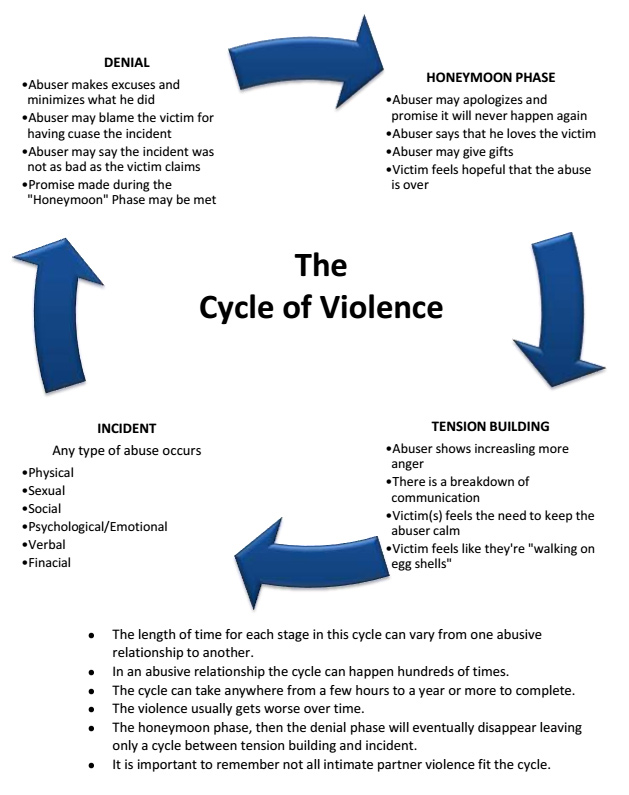 Usually, women need to trust their partner in order to feel physical and emotional arousal. If a girl feels fearful or angry with her partner, she will not feel safe and her body will react accordingly,” Engle says.
Usually, women need to trust their partner in order to feel physical and emotional arousal. If a girl feels fearful or angry with her partner, she will not feel safe and her body will react accordingly,” Engle says.
• You feel sorry for your partner, despite the fact that he hurts you
“Emotional abusers are masters of manipulation. They hurt you while making you think it's your fault, or at least that they were hurt in childhood or past relationships. You just feel sorry for them. Victims of emotional abuse often ignore the behavior of their abusers because they appear unhappy, rejected, abandoned,” warns Dr. Stines.
• The partner suddenly changes plans too often in order to "make a surprise »
Open attempts at control are easy to spot, but there is a more sophisticated method, the so-called "hidden control", which is often resorted to by abusers. “Hidden control” is a sudden change in an already planned one (the two of you go to a nearby bistro instead of an evening with friends) or a sharp revision of joint plans under the guise of a “surprise”.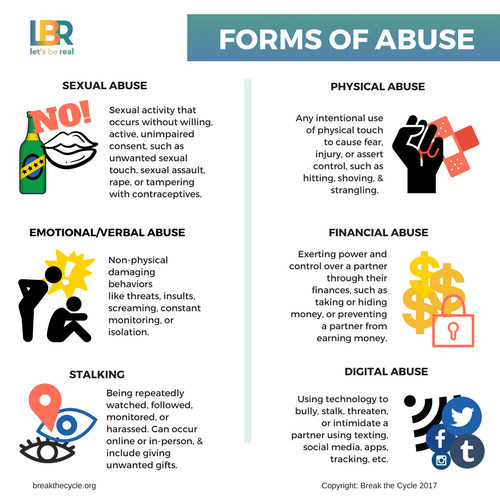 “It's control without overt demands: at first you're flattered by the attentions, but over time it can become the rule and your own wants and needs take a backseat,” explains Peg Streep.
“It's control without overt demands: at first you're flattered by the attentions, but over time it can become the rule and your own wants and needs take a backseat,” explains Peg Streep.
Thus, if you are afraid to object, express your point of view, discuss options, consider a conflict situation from a different position, if you do not know your true desires, because your “desires” are the desires of a partner, then most likely you need something change in relationships.
How to fight back in case of psychological abuse :
1. Adhere to the rules of reasonable selfishness. This means that you have the right to express your feelings, desires, thoughts. You have the right to protect your psychological and physical boundaries and act in your best interests. Taking care of yourself is okay. To the manipulative statement “you are an egoist / egoist”, it is better to proudly answer: “Yes, it is!” It is foolish to deny the fact that every person appreciates, accepts and loves himself. Then you won't have to curry favor with your partner to "deserve" his "love".
Then you won't have to curry favor with your partner to "deserve" his "love".
“To live the way you want is not selfishness. Selfishness is when others should think and live the way you want” O. Wilde
2. Listen to YOUR feelings. If you feel unpleasant, hurt, offended - this is a signal that it is better to end the relationship or, at least, you need to convey your feelings to your partner.
3. Develop self-confidence, know your strengths, rely on yourself, and not on the opinions of others. Sometimes it's good to say "No" if you know you're not happy with something.
4. Consider only constructive criticism. You can respond to destructive criticism in the following way: “If you criticize, offer”
5. Sometimes you can calmly say: “I don’t know” . This does not mean at all that your intellectual capabilities are limited, it just means that at the moment you do not have the necessary information, but you can study it, find out, understand a complex issue, etc. Like any person, you are in the process of development.
Like any person, you are in the process of development.
6. Allow yourself to make mistakes and correct mistakes. Any person has the right to make mistakes. Only those who do nothing do not make mistakes.
It is important to remember that there are no failures, there is only experience.
7. Develop emotional intelligence skills - if you have learned to manage your emotions, you will not let others control you.
8. Learn the techniques of assertive behavior . It means defending yourself and your boundaries. Being good is simple: you have to do all your life what others expect of you; and to be happy means to be able to defend your right to be yourself.
9. Remember that fighting with yourself is not productive. In such a "war" there will be no winner. It's easier to make friends with yourself.
10. Communicate with someone who sincerely rejoices in your success m, who knows how to appreciate your efforts and desire to change your life for the better!
"I" - ideal "I" - real: how to find harmony
Family counseling.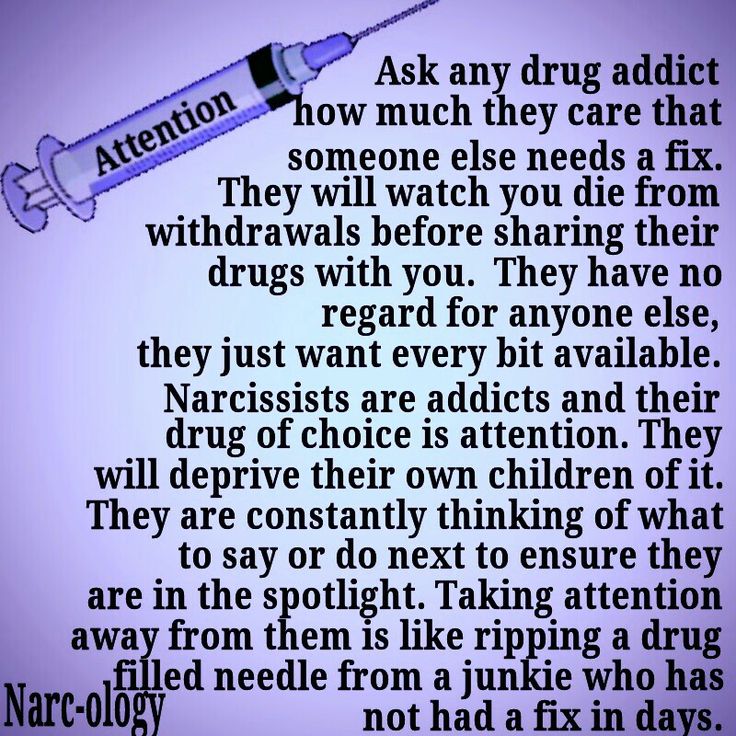 Expanding the behavioral repertoire.
Expanding the behavioral repertoire.
Emotion control panel
Causes of depreciation, and how to learn to value yourself
Psychological effects and prevention of distress
Psychological age
Humiliate and assert yourself: 8 signs of an emotionally abusive relationship
Foto: ShutterstockPhysical violence in the family is easy to spot. Emotional insults are less recognizable. They are not always understood even by the offender and the victim. According to sovets.net
The continuation of the article is under advertising
Advertising
Humiliation
One of the ways of emotional abuse is the habit of publicly criticizing a person, making fun of him. The goal is to make the partner feel bad, damage self-esteem, show that he is not worthy of attention and respect.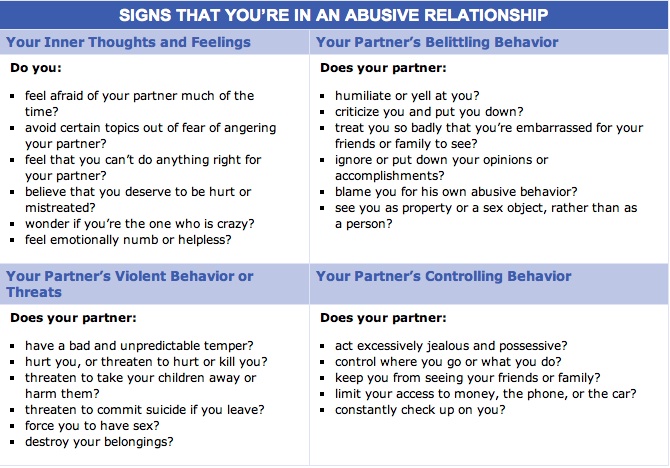
Control
This action often extends to all spheres of life. The emotional abuser sets rigid rules about what you can and cannot do. At the same time, he constantly monitors their observance.
Denial
The meaning of such an action is to make you doubt yourself, your personal perception of the world, feel insecure. The offender forces to believe that the person is to blame for what is happening. He makes you rely on his own thoughts or explanations.
Criticism
If one partner constantly humiliates the other, this is a sign of a psychologically abusive and toxic relationship. The more often this happens, the more faith the victim has that it's true. She starts to think she doesn't deserve better.
Accusations and guilt
Quite often people who have behaved wrongly do such things. They shift the blame onto their partner or simply make up accusations to maintain a sense of control.
Codependency
This can work in two ways. The offender makes the victim completely dependent on him for all needs - housing, finances, support. Otherwise, the partner puts his desires above all and forces the other to provide them.
Emotional neglect
Instead of resolving the conflict that has arisen in the relationship, the partner may leave home and not answer calls. His task is to force himself to seek, regret, feel guilty for what happened.
Isolation
The abuser actively prevents friends and family from accessing. He can present the victim from a bad side so that everyone turns away from her.
Delfi on Telegram: Latest Latvian news for those who have little time
Source
Did you notice an error?
Select the text and press Ctrl + Enter!
Source
Tags
Conflict Violence The published materials and any part thereof are protected by copyright under the Copyright Act and may not be used without the consent of the publisher.